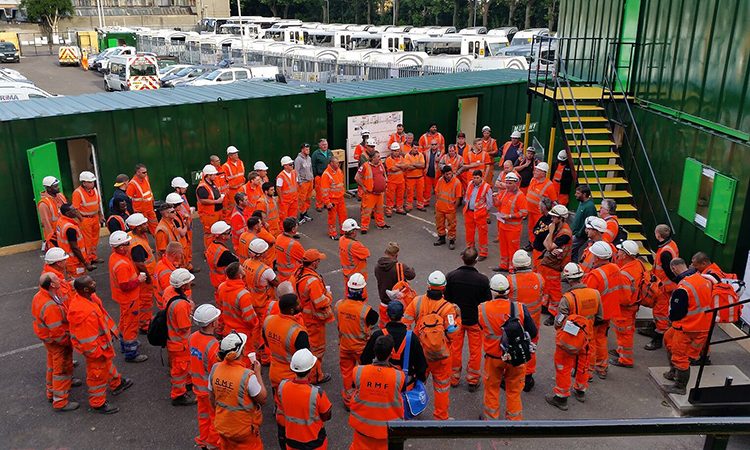Rail Skills Conference proposes ‘Railway Erasmus’ to address workforce shortages
Posted: 25 October 2024 | Global Railway Review | No comments yet
The STAFFER project recommends a ‘Railway Erasmus’ and national rail education programmes to equip young Europeans with essential skills and address labour gaps in the rail sector.


Credit: Network Rail
The Skill Training Alliance For the Future European Rail System (STAFFER) project has recommended initiatives like a ‘Railway Erasmus’ and national rail curriculums to address skill shortages in the European rail sector and attract young talent. After four years of research, STAFFER presented its final report in Brussels, outlining steps to create a skilled and diverse future workforce for Europe’s railway industry.
The project’s findings promote a ‘Railway Erasmus’ programme, modeled after the Erasmus programme, to allow railway students and apprentices to gain hands-on experience across European countries. This initiative would fill workforce gaps by equipping young people with essential technical and soft skills through cross-border, on-the-job learning.
STAFFER’s recommendations, part of the Rail Sector’s Blueprint for Skills initiative funded by the EU’s ERASMUS+ Programme, include a continuous learning model called ‘70-20-10,’ which balances practical training with mentorship and formal instruction. This approach is designed to integrate young professionals into the workforce effectively.
Additionally, STAFFER proposes dedicated national rail curriculums at universities and technical colleges. These courses, developed in partnership with rail companies, would open new paths for recent graduates and job changers, targeting those interested in rail careers. Funding support could come from ERASMUS+ and the European Social Fund, enabling rail-focused education and wider training access.
The report also highlights the demographic challenges in the sector, with an aging workforce (about 40-45% over 50) and only around 20% female representation. To counter this, STAFFER suggests inclusive policies, including the STAFFER Mentoring Programme, to help integrate women, immigrants and other underrepresented groups.
The STAFFER project’s recommendations urge EU policymakers, rail industry stakeholders and education providers to implement these initiatives to bridge skill gaps, modernise the workforce and empower young Europeans with meaningful rail career opportunities.
UNIFE Director General Enno Wiebe said: “Thanks to STAFFER, we have the ability to trial an educational pathway, which if successful, can provide the rail sector and supply industry the blueprint to give young people the best chance to feel confident, learn skills and succeed professionally.”







